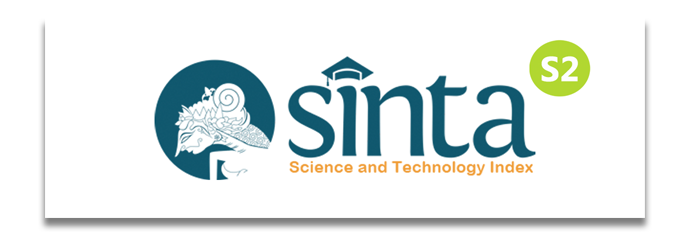The Influence of Social Media on Self-Medication and Treatment of Acne Vulgaris
Downloads
Background: With the advancement of technology, access to information about acne vulgaris has become easier. Social media has become a key platform for influencers and doctors to educate the public about acne, which often leads acne sufferers to use social media as a reference for understanding the condition and treatment options. As a result, many individuals choose to practice self-medication based on information obtained from social media. Purpose: This study aims to examine the impact of social media on self-medication and the treatment of acne vulgaris. Methods: This is an analytical cross-sectional study conducted among high school students. The sample was selected using consecutive sampling. Data was collected through a questionnaire that assessed social media usage, self-medication practices, and treatment outcomes. Result: Among the 92 respondents who participated in this study, the following results were found: 18 respondents had a high level of social media usage, 54 respondents had a moderate level, and 20 respondents had a low level. In addition, 64 respondents expressed interest in self-medication, while 28 respondents were not interested in self-medication. The results of the acne treatment of 64 people interested in self-medication showed that eight people had significant improvement in self-medication results, 52 people had slight improvement, and four people had no improvement. The bivariate analysis shows that social media influences self-medication but does not affect treatment outcomes. Conclusion: Social media influences self-medication but does not affect the treatment outcomes of acne vulgaris.
Mahto A. Acne vulgaris. Medicine. 2017;45(6):386-92.
Sutaria AH, Schlessinger J. Acne Vulgaris [Internet]. National Library of Medicine. StatPearls Publishing [Internet]. 2023 [cited 2024 Dec 18]; Available from: https://www.ncbi.nlm.nih.gov/books/NBK459173/
Teresa A. Akne Vulgaris Dewasa: Etiologi, Patogenesis danTatalaksana Terkini. Jurnal Kedokteran Universitas Palangka Raya. 2020;8(1):952-64.
Aini SR, Puspitasari CE, Erwinayanti GS. Alih pengetahuan tentang obat dan obat tradisional dalam upaya swamedikasi di desa Batu Layar Lombok Barat. Jurnal Pendidikan Dan Pengabdian Masyarakat. 2019;2(4):407–10.
Bunardi A, Rizkifani S, Nurmainah N. Studi Tingkat Pengetahuan Dan Perilaku Swamedikasi Penggunaan Obat Analgesik Pada Mahasiswa Kesehatan. Jurnal Mahasiswa Farmasi Fakultas Kedokteran UNTAN. 2021;4(1):1–9.
Yousaf A, Hagen R, Delaney E, Davis S, Zinn Z. The influence of social media on acne treatment: A cross‐sectional survey. Pediatric Dermatology. 2020; 37(2):301–4.
Hernowo B, Parmini. Dampak Informasi dan Sumber Daya Digital Terhadap Pengambilan Keputusan Swamedikasi. Jurnal Kesehatan Madani Medika (JKMM). 2023;14(2):193–9.
Untari J, Pertiwi SW, Aini N, Pratiwi R, Rusyani YY. Paparan Media Informasi dengan Perilaku Swamedikasi pada Masyarakat Kampung Jetisharjo Kota Yogyakarta. Jurnal Formil (Forum Ilmiah) Kesmas Respati. 2023; 8(2):180–90.
Nurhayati N, Kurwiyah N, Rohanah R, Paramita SD, Atifa AD. Keterpaparan informasi dan tingkat pengetahuan tentang stunting pada remaja putri. Holistik Jurnal Kesehatan. 2023;17(8):688-96.
Rhamelani P, W Rakhmawati, NN Maryam, Hendrawati S. Pengetahuan dan perilaku pencarian pelayanan kesehatan orang tua yang memiliki anak dengan tuberkulosis pada masa pandemi Covid-19. Holistik. 2023;17(1):52–70.
Widayanti D. Karakteristik Ibu dengan Bayi Berat Lahir Rendah di RSUD Wonosari Tahun 2020 – Test Repository. Poltekkesjogjaacid. 2020 [cited 2024 Dec 18];
Latif WT, Hartianty EP, Mardiyanti S, Kartawinata TG, Helmi H, Kurniawan A. Gambaran Pengetahuan dan Faktor-Faktor yang Mempengaruhi Masyarakat dalam Menggunakan Obat Tradisional di Kecamatan Tinangkung, Kabupaten Banggai Kepulauan, Sulawesi Tengah. Jurnal Farmasi dan Farmakoinformatika. 2023;1(2):139-52.
Alsatti H, Samarkandy SJ, Albogami DB, Alrajhi RK, Alahmadi RA, Alturkistani R, Alzahrani S. The Impact of Social Media on Seeking Dermatological Care. Cureus. 2023;15(12):e49941.
Cassalia F, Ciolfi C, Scolaro F, Danese A, Lunardon A, Caroppo F, et al. Use of social media by the public regarding skin health: effects on dermatological awareness and preventive behaviours. Acta Dermato-Venereologica. 2023;103:15341.
Joshi M, Korrapati NH, Reji F, Hasan A, Kurudamannil RA. The Impact of Social Media on Skin Care: A Narrative Review. Lviv clinical bulletin. 2022;1-2(37-38):85–96.
Copyright (c) 2025 Berkala Ilmu Kesehatan Kulit dan Kelamin

This work is licensed under a Creative Commons Attribution-NonCommercial-ShareAlike 4.0 International License.
- Copyright of the article is transferred to the journal, by the knowledge of the author, whilst the moral right of the publication belongs to the author.
- The legal formal aspect of journal publication accessibility refers to Creative Commons Atribusi-Non Commercial-Share alike (CC BY-NC-SA), (https://creativecommons.org/licenses/by-nc-sa/4.0/)
- The articles published in the journal are open access and can be used for non-commercial purposes. Other than the aims mentioned above, the editorial board is not responsible for copyright violation
The manuscript authentic and copyright statement submission can be downloaded ON THIS FORM.















